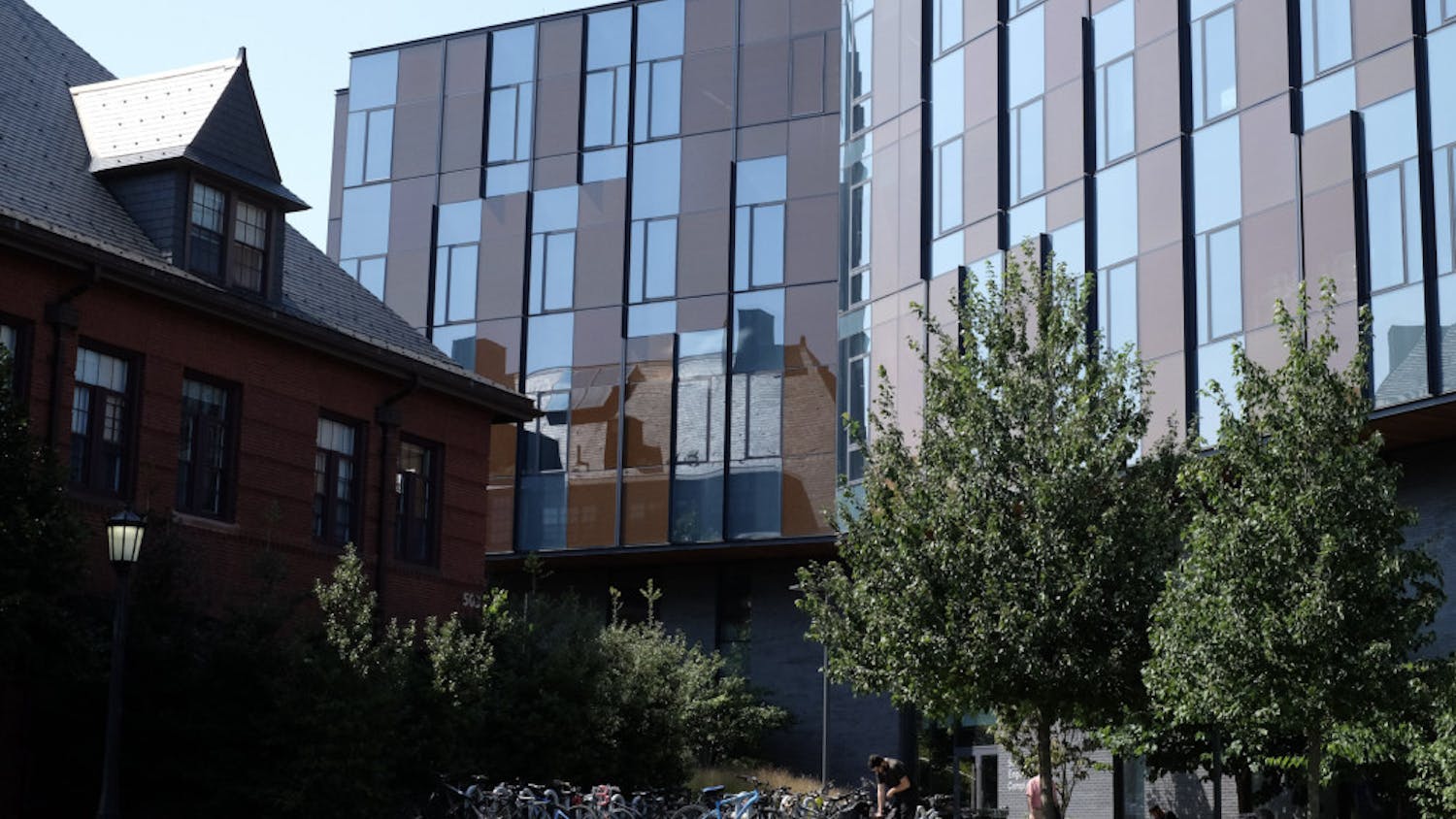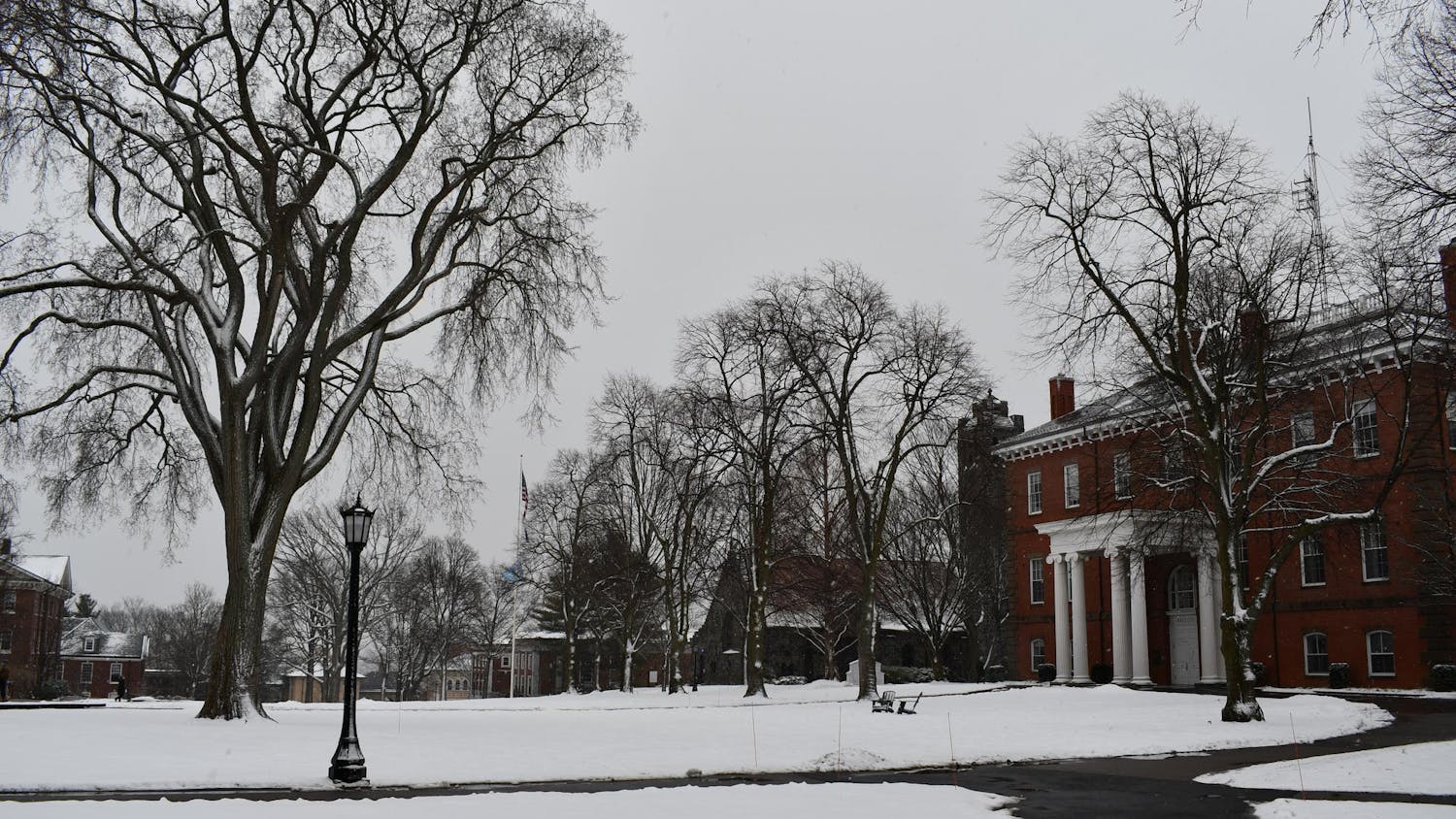Tufts’ Board of Trustees has voted to ban direct investments in 120 coal and tar sands companies with the largest reserves, according to an email sent to the community on Feb. 10. Tufts currently does not have any direct investments in coal and tar sands companies; the policy change will prevent future direct investments, according to the email.
The announcement outlined the recommendations of the Responsible Investment Advisory Group (RIAG), a group of students, faculty, administrators and trustees that can be convened when there are concerns regarding the social impact behind the university's investment decisions, according to astatement made by the Office of Trustees last year.
To call for the RIAG, members of Tufts Climate Action (TCA)submitted a proposal on Dec. 6, 2019, detailing why Tufts should divest from fossil fuels and what divestment could look like, according to Temple Miller-Hodgkin, a co-author of the proposal anda member of the RIAG.
The RIAG discussed research that TCA compiled in the proposal, and also relied on the expertise of other RIAG members,Miller-Hodgkin, a junior, wrote in an email to the Daily.
Nearly all of Tufts’ endowment is held in funds managed by third parties of which the university has no direct control, including commingled funds and separately managed accounts. According to the RIAG’s report, Tufts had about $10.3 million invested, as of June 30, 2020, in the restricted 120 coal and tar sands companies through commingled funds and separately managed accounts.
Since these commingled funds and separately managed accounts are outside the university's control, they are not included in the new policy, but the university has committed to try to influence these indirect investments through external investment managers, according to the email.
“Many of the managers Tufts has invested with have already made substantial progress on integrating [environmental, social, and governance] considerations into their investment processes, but there is always more that can be done,” Patrick Collins, executive director of media relations, wrote in an email to the Daily. “We are working with our partners to ensure on-going improvement on these dimensions and will continue to assess each investment in the portfolio to make sure they reflect the values of Tufts and the investment requirements of the endowment.”
As a representative of TCA, Miller-Hodgkin is unsatisfied with this announcement.
He believes Tufts' announcement does not actually entail modifying any current investment.
“The university is saying this is divestment, and it’s definitely a step in the right direction, but it’s definitely the weakest possible form of divestment,” Miller-Hodgkin said. “They’re not saying the third party managers have to divest … they’re also not touching oil and gas, either in the investments that Tufts directly controls or in the third party part of the endowment.”
Re-evaluation of Tufts’ progress following RIAG’s report in two to five years was one of the actions outlined in the email.
Emily Witherell, a member of TCA, emphasized that more work needs to be done by student activists during a TCA meeting on Feb. 15 addressing Tufts’ announcement.
“This is a climate crisis and we don’t really have time to wait until the RIAG re-evaluates the situation in two to five years,” Witherell, a sophomore, said. “Re-evaluation can only be triggered by student pressure, so this timeline isn’t actually set in stone … it’s just if TCA writes another proposal that then has to be evaluated and go through the whole bureaucratic system.”
Witherell also noted that it has taken eight years since the founding of TCA for Tufts to reach this decision.
Jada Sullivan-Brito, a member of the RIAG and a Board of Trustees representative for Tufts Community Union Senate, expanded on the challenges of pushing for change as students.
“From the Board’s perspective, at least, [students] have a shelf life [of] four years to them,” Sullivan-Brito, a senior, said. “I think that contributes to why we’re not taken seriously when it comes to presentation of our concerns."
Other promises from Tufts include investing $10 to $25 million to climate change-related positive impact funds in the next five years and, to increase transparency, creating a dashboard that reports on the progress of the actions, according to the email.
In contrast, Sullivan-Brito noted the lack of transparency when working with members of the Board on the RIAG.
“It kind of seems like some of this information is just conjured up and handed to us,” Sullivan-Brito said.
Though not completely satisfied, Miller-Hodgkin noted that this announcement is an improvement from the administration’s previous stance and sentiments on the issue.
“The argument in the previous divestment campaigns they said 'no' to was 'the endowment is completely apolitical … there’s no way that we can change the endowment,'” Miller-Hodgkin said. “Now they finally admitted that there's some wiggle room there around what the endowment actually like can be used as a tool for.”






